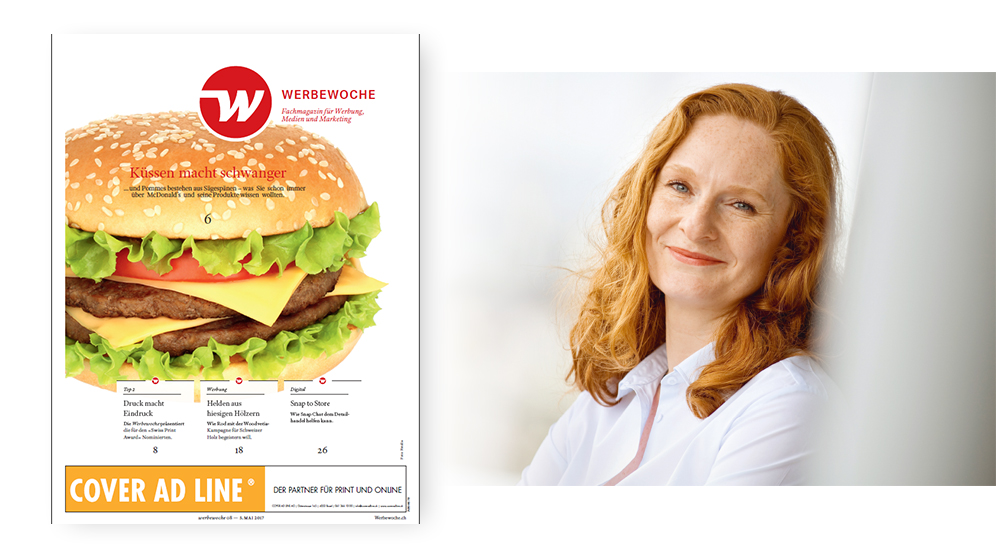What counts is the overall performance
The editorial by Editor-in-Chief Anne-Friederike Heinrich from Werbewoche 8/2017.

Anyone who is still crazy enough to publish a printed newspaper or magazine today has to make sure that they provide a parallel digital offering that captivates readers, delivers additional content and extends the "magazine" or "newspaper" into the world of zeros and ones. Only those who are also digital, social and mobile can retain readers or (even better) attract new ones.
The difficulty: The multiplied offer must be of high journalistic quality on all channels, fully exploit the advantages of the respective channel and must not cost anything - at least beyond the paper. So it must be put together by micro-editorial teams with no resources. In addition, digital news must not cannibalize the print edition; there is a great danger that once loyal subscribers will switch to digital if they can get the same or at least comparable things there free of charge. Getting paid digital offers seems just as hopeless as getting young people to pick up paper.
Operators of German online stores make losses of up to 20 million euros per year.
As if this initial situation were not difficult enough, readers' demands on the (unpaid) digital offering are growing: moving images, music clips, animated infographics, slider image shows, archives and e-shop have to be provided and put not only editorial resources but also the IT infrastructure under considerable strain. If the performance of the hosting collapses, there is a big outcry: If the server is down for the advertising week, if the "Advertiser of the Year" voting tool goes down, if the newsletter arrives too late, twice or not at all, we very quickly have to deal with our readers, between desperate and angry. Nice to hear something from you!
If the printing press was broken in the past, no newspaper came out. This was a logical state of affairs and was accepted. Even if it cost the publisher a lot of money. The fact that today (in addition to the printing press) the IT system can also be jammed is simply not acceptable. A German study recently showed that operators of online stores lose up to 20 million euros a year - because of abandoned shopping carts; not caused by consumers who have changed their minds, but by faulty or sluggish IT infrastructure, server failures or excessively long loading times.
Rarely is IT load inhibition due to "human error," as was recently the case with the online-since-no-longer-only-bookseller Amazon. In most cases, hosting does not scale smoothly or the infrastructure is overloaded. Anyone who has been annoyed once or twice by an Internet offering will never come back - unless the prices are unrivaled.
What does this mean for the media and their readers? That our business, which has become fragile, has to meet additional requirements: It's no longer just a matter of doing the best research and telling the most gripping stories, of setting topics, of being the very first to disseminate information that the competition doesn't yet have, or of quickly checking, substantiating and, if necessary, revising what's already been reported. Our technology must also work, the hosting must be fail-safe. If the performance weakens, possibly repeatedly, we lose readers - the worst case scenario for us. And we can't even do anything about it ourselves, except choose a hosting that seems to be reliable.
Perhaps the knowledge that we always give everything, even if we don't have everything in our hands, will help us and you in this quality crunch. As well as a bit of humor - and that's when you laugh anyway. And keep going.
Anne-Friederike Heinrich, Editor-in-Chief
f.heinrich@werbewoche.ch








